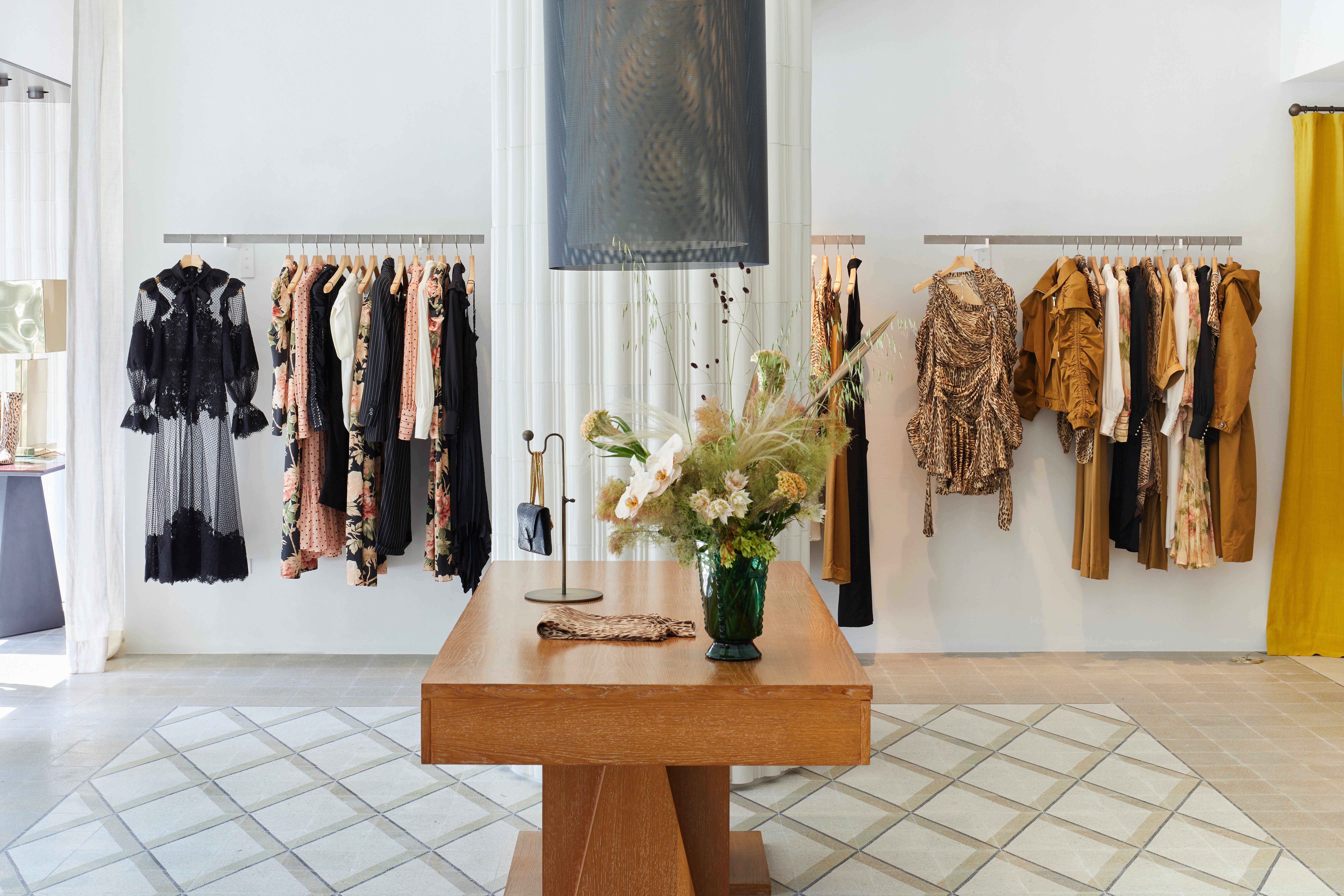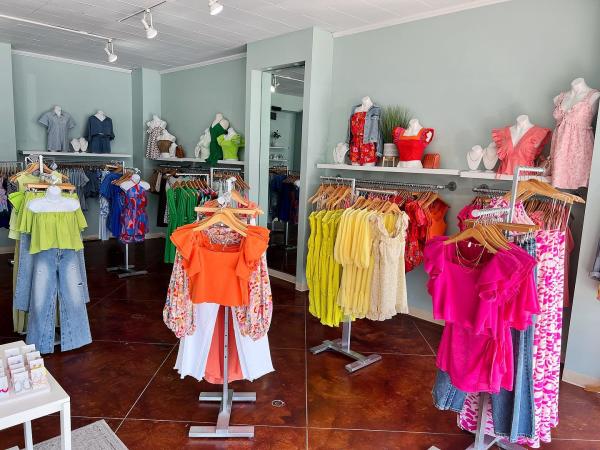The Impact of Social Media on Today's Boutique Fashion Trends
Wiki Article
Checking Out the Evolution and Impact of Apparel on Modern Fashion Trends
The development of clothes has considerably influenced modern style fads, combining historic precedents with advanced developments. Renowned figures like Coco Chanel and Yves Saint Laurent changed the style sector by presenting ideas that prioritize comfort and access, which proceed to resonate today.Historical Style Influencers
In the tapestry of style history, certain figures have left an enduring mark, forming the patterns and styles that specify entire eras. Coco Chanel, a revolutionary developer, redefined ladies's fashion by presenting comfortable, elegant apparel that left from restrictive bodices. Her legendary Chanel suit and little black dress have ended up being classic staples in closets worldwide. Christian Dior's post-war "New Look" in 1947, with its party of womanhood through complete skirts and cinched waists, noted a return to opulence and has actually proceeded to influence developers.Elsa Schiaparelli is another crucial figure, renowned for her progressive layouts that incorporated surrealist art, teaming up with Salvador Dalí to develop whimsical pieces that tested conventional appearances. Her innovative usage of shade and bold patterns reverberates in modern fashion. Yves Saint Laurent, on the other hand, equalized high fashion with prêt-à-porter collections, bringing runway styles to the masses and establishing a criterion for modern-day ready-to-wear lines.
These visionaries, amongst others, not only transformed fashion in their times however additionally established enduring trends that resonate in today's apparel industry, providing a foundation upon which contemporary developers proceed to construct and introduce. Their traditions underscore the importance of creative thinking and daring in vogue's ever-evolving narrative.
Technological Developments in Style
Among the vibrant landscape of the garment industry, technical innovations stand at the center of technology, improving just how developers develop and customers involve with fashion. The combination of 3D printing has transformed layout procedures, allowing designers to explore complicated structures and sustainable products that were formerly impossible. This technology facilitates quick prototyping, lowering waste and quickening manufacturing times.
Smart textiles, embedding technology right into textiles, are additionally changing the industry. Advancements like self-cleaning and temperature-regulating materials supply improved performance and convenience. Wearable innovation, including attributes like health and fitness monitoring and interaction, includes a new measurement to fashion, combining aesthetics with functionality.
Cultural Changes and Design
As technical innovations proceed to improve the style sector, social changes are similarly prominent, redefining design and consumer choices. Recently, the surge of social networks platforms has actually sped up the dissemination of worldwide style fads, permitting varied social impacts to converge and exist together. This digital interconnectivity has helped with the rapid exchange of ideas, leading to an extra comprehensive and eclectic interpretation of design that mirrors the diverse nature of contemporary society.Social recognition and recognition have actually motivated developers to draw inspiration from a more comprehensive range of ethnic and historical contexts, incorporating standard themes with contemporary aesthetic appeals. This combination has caused fashion that reverberates with a bigger audience, advertising a feeling of identity and belonging throughout different demographics. In addition, the increasing need for customization has driven brand names read this article to supply adjustable alternatives, making it possible for customers to express uniqueness while showing their social heritage.
Additionally, changing check out this site social worths have actually influenced fashion, with inclusivity and diversity becoming main motifs. The industry has actually started to accept versions and influencers of numerous physique, ethnicities, and gender identities, challenging conventional beauty standards. This makeover underscores the power of cultural changes in forming the future of style, as design becomes a more genuine expression of collective and individual identity.
Sustainability and Modern Layout
While the garment industry continues to develop, the necessary for sustainability has become increasingly immediate, affecting modern-day layout practices. This change aims to deal with environmental issues and ethical considerations, bring about a reevaluation of conventional production methods. Designers are now integrating sustainable materials, such as organic cotton, recycled polyester, and biodegradable textiles, right into their collections, reducing the environmental impact of fashion. The surge of slow-moving fashion, which highlights quality over amount, motivates customers to buy ageless pieces instead of transient patterns.Furthermore, modern-day style is defined by its advancement in minimizing waste and advertising circularity. This method not just minimizes ecological impact yet likewise boosts the social obligation of fashion residences.

Future Trends in Style

Sustainability will remain to be a driving pressure in shaping future fashion trends. The sector is progressively embracing environmentally friendly products and ethical manufacturing techniques, reacting to an expanding consumer need for accountable techniques. Innovations such as bio-fabricated materials and closed-loop recycling systems are set to redefine how garments is generated and eaten, minimizing ecological influence while maintaining design and top quality.
Social shifts, including the rise of inclusivity and variety, will likewise play a critical role. As culture ends up being more mindful of social issues, fashion is anticipated to come to be a system for expression and adjustment. Developers will likely concentrate on developing collections that show a wider series of experiences and identifications, promoting depiction and ease of access.
Final Thought
The evolution of garments dramatically impacts contemporary style fads, where historical influences combine with modern layouts. Trick figures like Coco Chanel and Yves Saint Laurent have actually redefined design, while technical technologies such as 3D printing and smart textiles broaden innovative possibilities. Social changes in the direction of inclusivity and sustainability oblige brands to accept and embrace moral find methods variety. This continuous evolution highlights style's function as a mirror to social worths and technological innovation, recommending a future abundant with development and inclusivity.The development of garments has actually significantly influenced modern style fads, combining historical precedents with advanced developments.Among the vibrant landscape of the style industry, technical innovations stand at the center of technology, improving how designers develop and consumers involve with fashion.While the fashion market continues to progress, the imperative for sustainability has ended up being increasingly immediate, affecting modern-day layout methods. As sustainability comes to be ingrained in contemporary design, it leads the method for a more mindful and responsible style market.
The evolution of clothing substantially affects contemporary style patterns, where historical influences merge with modern styles.
Report this wiki page